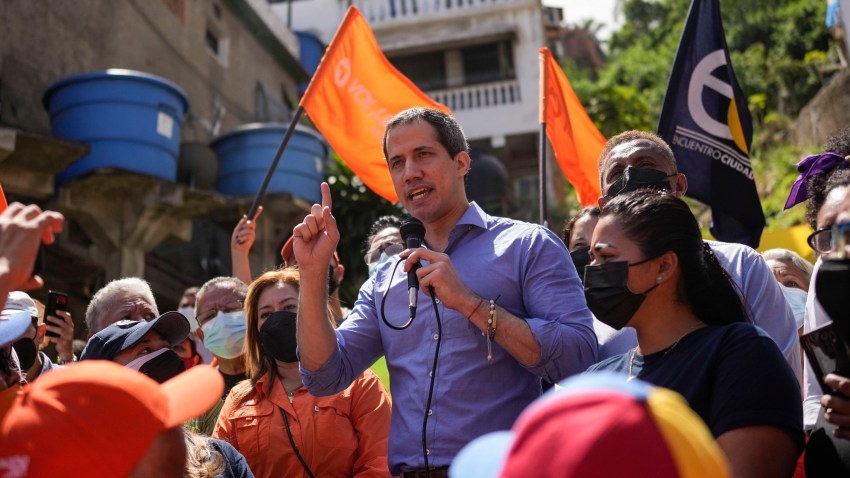After just under four years in office, Juan Guaido is no longer the de jure president of Venezuela. Once recognized by almost 60 countries around the world—including the United States, Canada and most of Europe and South America—he saw that number dwindle to fewer than a dozen countries by late 2022. While Guaido believed he should continue as the interim president, other opposition groups disagreed and voted him out in the final week of 2022. In his place, a committee of three opposition figures—Dinorah Figuera, Marianela Fernandez and Auristela Vasquez, all of them in exile—will take over the management of the country’s foreign assets, which the government of de facto President Nicolas Maduro has not controlled since Guaido assumed the presidency in January 2019.
Guaido justified his ascension to the presidency by pointing to the Venezuelan constitution, which states that the head of the National Assembly—the post he held at the time—shall become the rightful president in the absence of a legitimately elected president and vice president. The Venezuelan presidential election in 2018 was clearly and blatantly rigged in favor of Maduro, so much so that most of the international community refused to recognize it. Guaido and his supporters argued that, as a result, no president had been elected and that the office was vacant as of January 2019, when Maduro’s previous five-year term in office expired.
Of course, that legal justification aside, Maduro remained de facto president in Venezuela for the entire time Guaido was recognized outside the country as de jure president. Maduro controls the institutions of government within the country, including the military. A vast majority of the Venezuelan people don’t like him. Many view his rule as illegitimate, and a majority want to see someone else in power. However, nearly every person inside the country—and outside the country, for that matter—would acknowledge that in practice, Maduro has been running Venezuela for the past four years, not Guaido.

